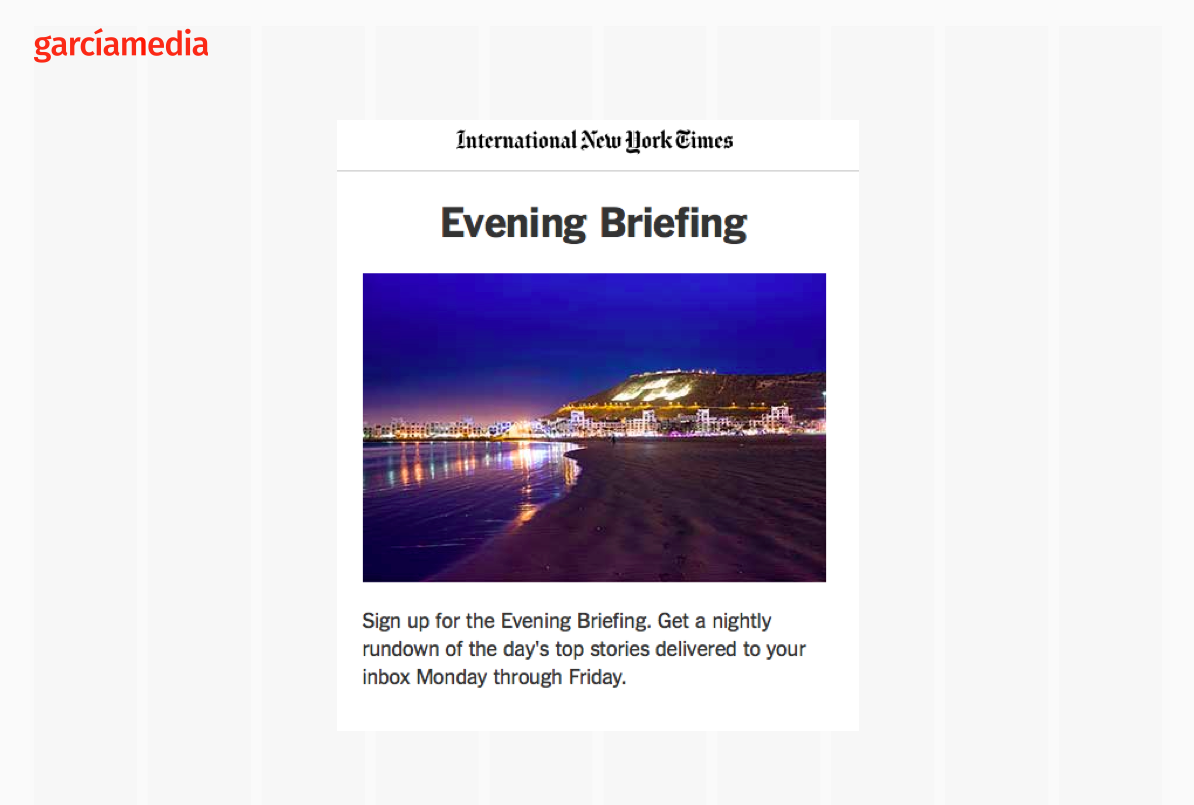
(For a contemporary example of this belief, see Washington Post editor Marty Baron’s staff memo after the Felicia Sonmez incident in January: “The Post is more than a collection of individuals who wish to express themselves…The reputation of The Post must prevail over any one individual’s desire for expression.”)īut the Times - one of that belief’s strongest proponents for years - has seen a remarkable example of what highlighting the individual can do. Third: Why does an email need a “host,” anyway?Ī core belief at most American newspapers for time immemorial was that the institution, the brand was bigger than any one reporter.


(The three network morning shows generated more than $800 million in ad revenue in 2018.) “Writer, host, and anchor of our flagship newsletter.” Host and anchor are the language of TV, which I’m sure isn’t accidental morning shows have used the personal connection between anchor and viewer, reinforced daily, to build extraordinarily profitable businesses. Even if a large share of those are dead accounts that never tap an email open, that’s a huge number of people waiting in that way station between “casual reader” and “paying customer.” ( Something north of 4 million people are paying Times subscribers - meaning there are millions of others who either treat the newsletter as a standalone product, never tapping a link, or who really like their browser’s incognito mode.)
#NYTIMES MORNING NEWSLETTER HOW TO#
He has superb news judgment, and an endless curiosity about the world and about how to connect with today’s news consumers.įirst: 17 million subscribers is a lot for a newsroom newsletter. He has spent his career breaking down complicated ideas and he writes clearly, conversationally and eloquently. David is the rare reporter with expertise in economics, statistics, politics, health care, education, the ways of Washington and more. We couldn’t imagine someone better equipped to act as the guide through the day’s news. We are thrilled to announce that David Leonhardt will return to the newsroom to become the new writer, host and anchor of our flagship newsletter, which will be rebranded as The Morning. That’s why we are turning to one of our most authoritative and nimble journalists to take the helm. The newsletter now has more than 17 million subscribers, one of the largest daily audiences of any kind in journalism, across television, radio, print and digital. Quietly, our flagship email newsletter, The Morning Briefing, has become one of our biggest and most important news products. For the first time, it’s getting a true host - David Leonhardt, the current Opinion columnist and past founder of The Upshot.įrom a memo to staff from Dean Baquet, Joe Kahn, and James Bennet: But a good morning newsletter orders the universe - says “this is most important,” “these are worth a quick look,” and “this is something lighter so you don’t close this email quite so angry at the world as those other stories would seem to justify.” It’s a guide - a host, even, moving you with ease and purpose through all your newsroom’s work.Īll that is why I’m interested in today’s announcement from The New York Times about changes to its flagship morning newsletter, The Morning Briefing.

Any digital news consumer wakes up with untold thousands of new articles they could decide to read. That’s what podcasts do you’re essentially telling a publisher “I trust you to come up with something compelling for me to listen to every day/week/whatever” rather than trusting the Facebook algo to do it.Īnd most prominently, it’s what most email newsletters do. Taking stories out of that context - making them just another unique URL on the internet - allowed Facebook, Google, Twitter, and other platforms to become the premier digital curators.Ī lot of the smart product development in news the past decade has been about recapturing that curatorial power. That context is a key ingredient in any good publisher’s promise that you aren’t just getting more information - you’re getting the right information. The rise of digital disrupted the news business in countless ways, but one of the most profound was the loss of the publisher’s role as curator.Ī newspaper didn’t just produce the news, after all - it also ordered and structured it, telling you which stories were important enough to merit a banner A headline and which were only worth a squib on 11D.


 0 kommentar(er)
0 kommentar(er)
